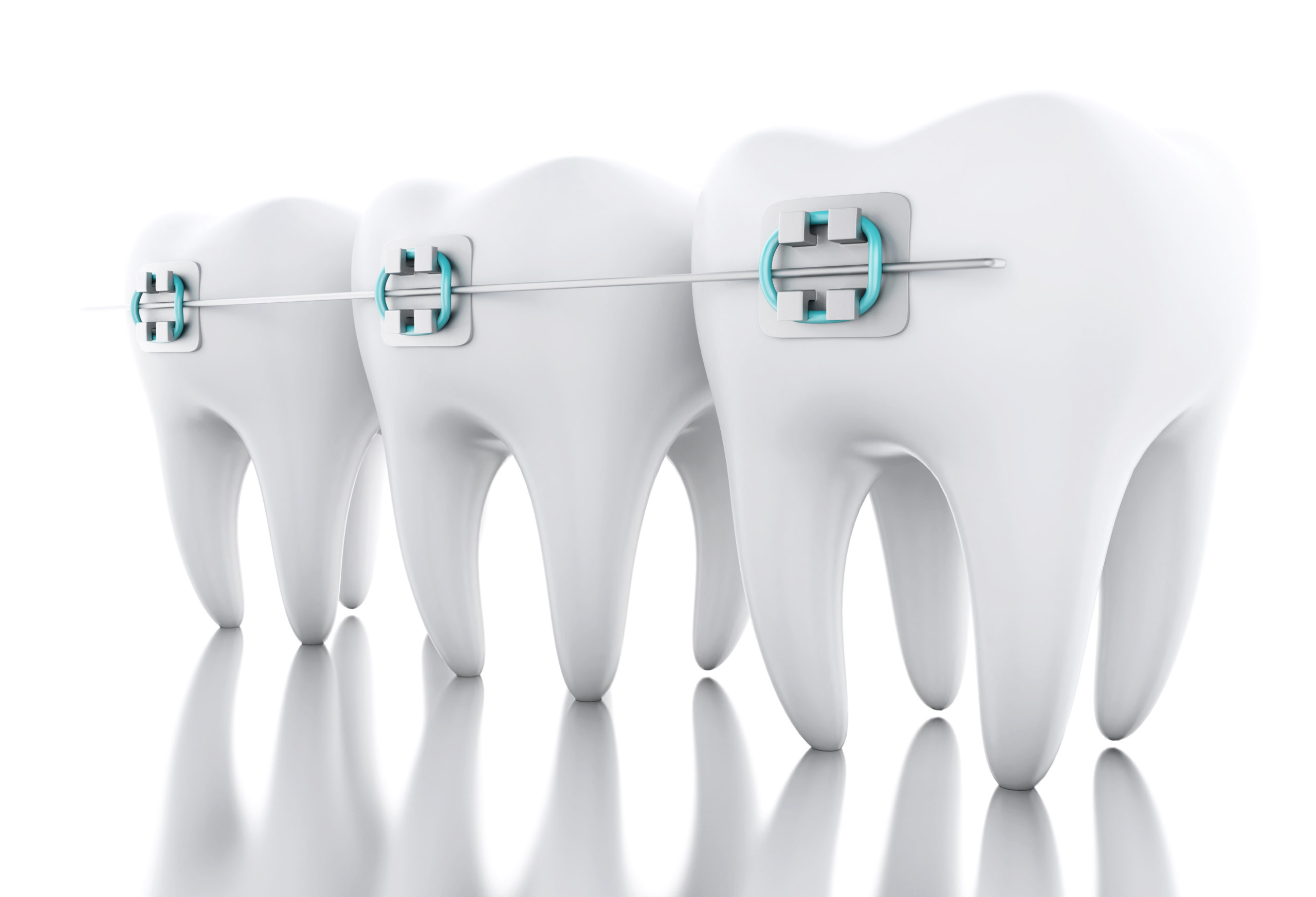BRACES
What to Know About Braces
Braces are the most common method for orthodontic patients. Braces today are much smaller, comfortable and easier to clean than they were just a generation ago. Metal braces are still the most popular and cost effective treatment available. Dr. Hoggan can help you determine if metal braces are best for you.
HOW DO
BRACES WORK?
After being attached to your teeth, the braces apply gentle but continuous pressure to help move your teeth into proper position. At your regularly scheduled appointments Dr. Hoggan may need to tighten your archwires. Some patients may need to wear additional hardware like headgear in order to achieve the desired smile.

TWO TYPES OF BRACES
CLEAR (CERAMIC)
Instead of metal wires & colored bands, you have the option to use ceramic and clear plastic.

METAL
Metal braces are the traditional type of braces you might see.

THREE MAIN PARTS OF BRACES
Bracket
Brackets are small orthodontic attachments made from metal or ceramic that are attached to each tooth.
Archwire
A wire that is attached to your brackets that is capable of guiding tooth movement.
Elastics (rubber bands)
Small elastic rubber bands are used to move teeth with a gentle, but continuous force to help individual tooth movement.
Life With Metal Braces
Now that you have braces, how do you take care of them?
It’s important for you to know how to take care of your braces throughout your entire orthodontic treatment.
Foods to Avoid
- Foods that require biting into:
- Apples, corn on the cob, carrots
- Hard Foods
- Nuts hard candies
- Chewy Foods
- Licorice, bagles
- Sticky Foods
- Chewing gum, caramel candies
- Crunchy Foods
- Ice, chips, popcorn
Foods to Eat
- Vegetables
- Mashed potatoes, beans, spinach
- Treats
- Ice cream, jell-o, cake, milkshakes
- Fruits
- Applesauce, bananas, kiwi
- Dairy
- Milk, pudding, cheese
- Grains
- Pasta, rice
- Breads
- Soft tortillas, muffins, pancakes
- Meats
- Meatballs, lunch meat, chicken
- Seafood
- Crab cakes, sushi, salmon
What to Expect
Soreness From Braces
When you first get your braces you might notice your mouth and teeth feel tender or sore. This is normal and it will not lost long. To help relieve your pain, dissolve 1 teaspoon of salt into 8 ounces of warm water. Swish and gargle the salt water in your mouth for just a few minutes. Do not swallow the saltwater. If after rinsing the pain is still bothering try taking an over the counter pain reliever.
Loose Teeth
Your teeth might start to feel a little loose, but don’t worry because this is perfectly normal. Your braces must first loosen your teeth to move them into the correct position. Once your teeth have been repositioned they will no longer be loose.
Loose Appliances
The bands and wires on your braces might come loose. If this happens you will need to contact our office as soon as possible so that we can repair your appliance. If any piece comes off be sure to try and save it and bring it to the office with you.
You can temporarily fix the loose wire by using the eraser end of a pencil to carefully and gently push the wire back into place. If the loose wire is causing irritation to your lips or cheeks, put wax over the broken wire to relieve the pain.
Playing Sports
You can still play sports even while undergoing orthodontic treatment. It is recommended that you wear a mouthguard to protect your teeth and your appliances. Let Dr. Hoggan know if you need help finding the right mouthguard for the best protection.
Take Care Of Your Appliances
Damaged appliances can increase the length of your treatment so you will want to be sure to take care of all of your appliances.
Your teeth and jaw can only move into their correct positions if you consistently wear the headgear, retainer, rubber bands, or any other appliances prescribed by Dr. Hoggan.

